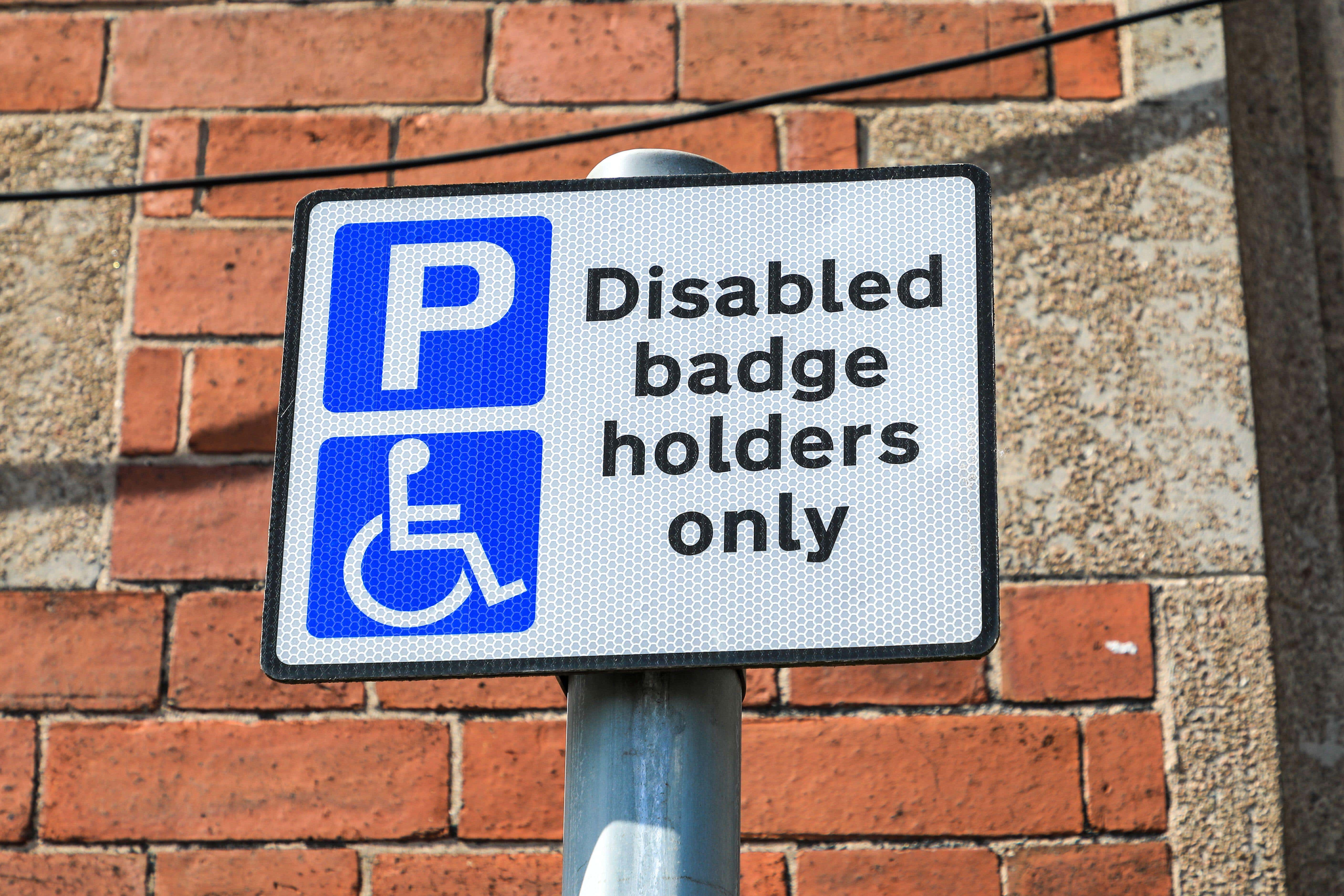What do disabled people have to do to get a blue badge around here...?
The case of the mother of two children with cerebral palsy denied a disabled parking permit because they’re too young is a new low, writes James Moore


I’ve lived in the world of disability for many years now and have bitter personal experience of the myriad ways British bureaucracy can be used to harass, intimidate and bully. I’ve seen the state at its absolute worst – that applies to both local and central government – so I judge myself to be pretty hard to shock.
However, after hearing Sarah Johnson’s story, even I was left horrified at the needlessly difficult and – to my mind – cruel situation both she and her family have been left in.
Johnson has two daughters, both of whom have cerebral palsy. Among the challenges they both face are mobility impairments. That being the case, she applied for a blue badge for them.
You’d think she would be a shoo-in. Blue badges exist, according to the Department for Transport, to “help people with disabilities or health conditions park closer to their destination”. These are children who not only have disabilities but also clearly need to be close to their destination, wherever that might be, when their parents are taking them out.
They would also benefit greatly from being able to make use of the yellow cross-hatched lines typically found on disabled spaces. These afford users a little extra width over what you get with everyday parking spaces.
Unfortunately, when Johnson applied, she ran into a problem: disabled children have to be over three years of age to qualify. Why this must be isn’t entirely clear. I’d like to know who decided that it’s not until the age of three that a child’s issues with mobility can be properly assessed by the nation’s box-tickers.
When asked about Sarah’s case, Kent County Council said that government guidance “provides a very clear set of eligibility criteria for children under three which were not met at initial assessment or appeal”.
But wait, there’s an exception for those in need of “bulky medical equipment”. The twins experience their condition differently. Iris can walk “a tiny bit” although she often falls over. Astrid, on the other hand, is unable to walk or stand independently. This means that she has been prescribed a Kaye Walker.
Kaye Walkers are bulky, and it was prescribed – problem solved! A fresh application was duly made to Kent Council’s blue badge team, only for the Johnson family to get knocked back again. Johnson said she was told the walker was the “wrong type” of bulky equipment. This was now taking on more than a hint of British Rail’s infamous “wrong type of snow” fiasco.
Johnson has written letters, contacted councillors, her local MP, the authority’s CEO, among others, to no avail. No third birthday, no blue badge, however bulky the walker is.
True, they can return to the well after the happy day but that misses the point. Johnson tells me they now rarely go out as a result because of the issues they have been left with. Because of what looks to me like needless bureaucratic bloody-mindedness, these children have had their world made smaller. The family’s life has been unnecessarily constrained. Innocent joy has been snatched from it.
Kent Council has responded to this and said the reasoning for the rejection is based on consistency and fairness to other applicants. It added that it would reassess the children once they “reach the age of three”. But if you ask me, Kent Council should be ashamed of itself. It is quite unconscionable, and yet another ugly example of the pettiness of power.
Johnson freely admits that it is now “too late for us” but needing an outlet for her understandable fury – and given what my family has been through in unrelated but similarly frustrating episodes, I can feel her pain – she has turned her attention to improving life for others, and has started a petition on the government’s website.
It wouldn’t take much to rectify this situation. Just some updated guidance. Perhaps someone in a ministerial office at the DfT could turn their mind to it and bring a little sunshine into people’s lives. It’s a radical notion, I know.
And the cost would be all but zero – you have to pay a fee to get a blue badge, and all this would do would be to bring it forward a little. I suspect that it would also be popular. A government that is 20 points behind in the polls and facing a difficult economic backdrop could surely make use of an inexpensive and popular measure or two, don’t you think?
Join our commenting forum
Join thought-provoking conversations, follow other Independent readers and see their replies
Comments
Bookmark popover
Removed from bookmarks